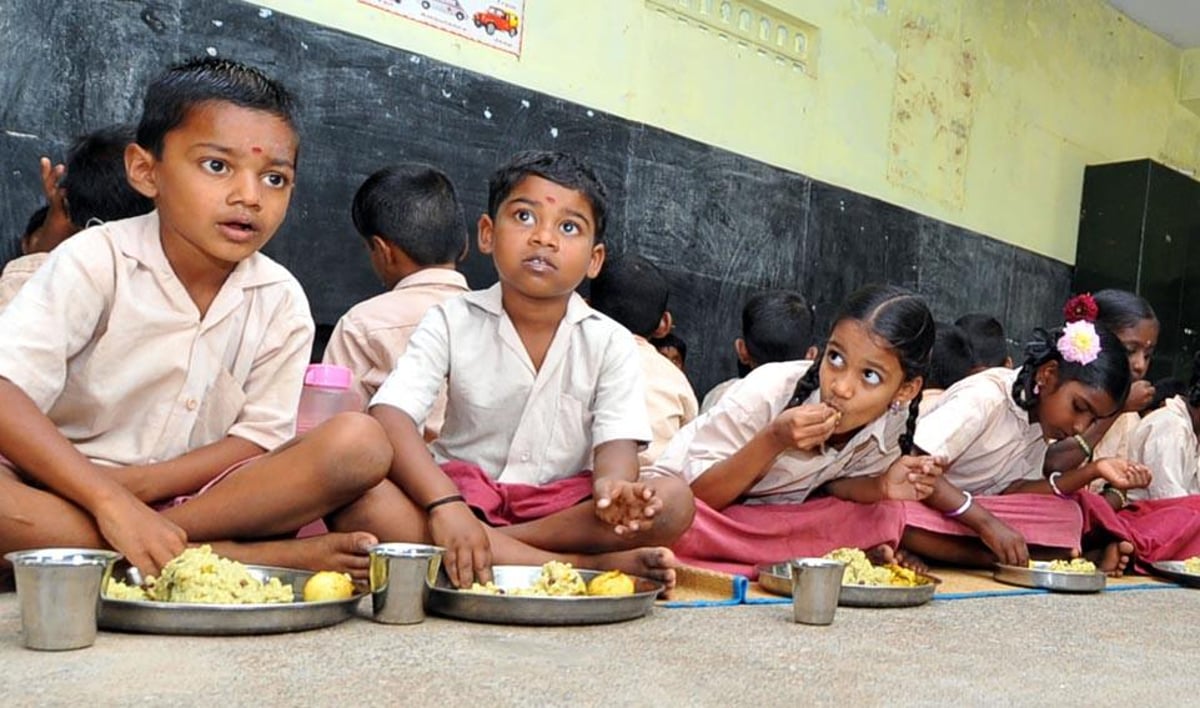


Residents of Kanibanka in Kendrapara district have expressed concern over the discovery of insects and worms in sattu and suji packets supplied by the local Anganwadi centre. Allegations have been made against the Self Help Group for providing substandard food, which has been denied by the Anganwadi worker Puspanjali Pradhan. The Odisha Deputy Chief Minister has promised strict action against those responsible for compromising the health of children with substandard food.
Substandard Food at Anganwadi: A Concern for Child Health
Anganwadi centers are crucial in providing nutrition and healthcare to young children and pregnant women in India. However, recent allegations of substandard food being supplied to an Anganwadi center in Odisha have raised serious concerns.
Discovery of Insects and Worms in Food Packets
Residents of Kanibanka village in Kendrapara district discovered insects and worms in sattu and suji packets provided by their local Anganwadi center. This alarming discovery prompted outcries from the community, who expressed concerns for the health of children consuming these contaminated food items.
Allegations Against Self Help Group
Residents have accused the Self Help Group (SHG) responsible for supplying the food of providing substandard items. They allege that the SHG purchased low-quality products to cut costs. However, the Anganwadi worker, Puspanjali Pradhan, has denied these allegations, stating that the food was obtained from authorized vendors.
Government's Response
The Odisha Deputy Chief Minister, who also holds the health portfolio, has taken cognizance of the matter and promised strict action against those responsible for compromising the health of children with substandard food. An investigation is underway to determine the root cause of this incident.
Background of Substandard Food in Anganwadi Centers
This is not an isolated incident. Over the years, there have been numerous reports of substandard food being supplied to Anganwadi centers across the country. The issues range from poor storage practices to the use of expired or contaminated ingredients.
FAQs
Q: What is the significance of Anganwadi centers?
A: Anganwadi centers provide critical nutrition and healthcare services to children under six years of age and pregnant and lactating mothers. They aim to improve the health and nutritional status of these vulnerable populations.
Q: Why is substandard food a concern?
A: Substandard food can contain harmful bacteria, parasites, or chemicals that can lead to foodborne illnesses. It can also lack essential nutrients needed for proper growth and development.
Q: What are the common causes of substandard food in Anganwadi centers?
A: Poor storage practices, insufficient monitoring, and the use of low-quality ingredients can all contribute to the supply of substandard food.
Q: What has been the government's response to these issues?
A: The government has implemented various measures to address this issue, including strengthening monitoring mechanisms, training SHGs, and imposing strict penalties for suppliers who provide substandard food.
Q: What can be done to improve the quality of food at Anganwadi centers?
A: Regular inspections, effective monitoring, and community involvement in the procurement process can help ensure that children receive the nutritious food they need. Additionally, raising awareness about the importance of food safety is crucial.

Shani Jayanti, the day dedicated to the worship of Lord Shani, falls on May 27, 2025, coinciding with Jyeshtha Amavasya. As per Udayatithi, the puja and rituals should be performed on the same day. However, certain tasks should be avoided on Shani Jayanti. Read on to know the significance of this day and the dos and don'ts to please Shani Dev.

Chief Minister Yogi Adityanath visited the Shanti Ashram in Lucknow to pay his last respects to Sant Shiromani Sai Chanduram, the head priest of the Ashram. He draped the mortal remains of Sant Shiromani with a saffron Angvastra and paid homage before his statue. Expressing deep sorrow over his demise, the Chief Minister wrote on social media about the irreparable loss of the spiritual leader. A large number of devotees gathered at the Ashram premises to offer their tributes and follow his teachings and ideals.

In an effort to improve vision care in rural India, the Bhaktivedanta Hospital & Research Institute held a Mega Eye & Dental Camp in Barsana, Uttar Pradesh. Equipped with state-of-the-art technology, the hospital aims to perform over 5000 PHACO procedures, free of cost, for those in need. The support of Tata Capital Ltd. enabled the camp to expand its reach to over 50,000 beneficiaries and receive the support of esteemed dignitaries including Smt. Hema Malini Ji and Smt. Nupur Desai.

Indian society has a narrow and sexist definition of parvarish, praising daughters who conform to traditional gender roles and blaming parents if they don't. However, it's time to focus on dismantling patriarchy within the household and raise a feminist generation. This means providing equal education to both daughters and sons, encouraging critical thinking and questioning societal norms. Parvarish should not mean curbing basic legal rights but rather empowering individuals to make their own decisions and think for themselves.

India's festival of lights, Deepawali, has been officially recognized by UNESCO as an intangible cultural heritage of humanity. The inscription acknowledges the festival's cultural significance and its ability to bring communities together. Prime Minister Narendra Modi welcomed the announcement, stating that Deepawali holds a special place in India's culture and represents values such as hope and righteousness. This recognition is expected to increase the festival's global popularity even further.

During Prime Minister Narendra Modi's recent visit to Tokyo, the city welcomed him with the soulful chanting of the Gayatri Mantra, one of the most sacred and powerful verses in Indian spiritual tradition. This ancient mantra, found in the Rig Veda, is believed to have a mental healing effect due to its repetitive and focused chanting. Research has also shown that it can improve well-being and provide a sense of peace and connection for both religious and non-religious individuals.

The M3M Foundation unveils 'Payal@40' campaign to commemorate Dr. Payal Kanodia's 40th birthday on December 9, 2025. This campaign, which aims for comprehensive impact across education, healthcare, skill development, and women's empowerment, reflects a leadership approach rooted in service and compassion. With the vision of Dr. Kanodia, the campaign marks a pivotal moment for the Foundation's ongoing mission of equitable development in India.

In a unique move to promote tourism, Madhya Pradesh Chief Minister Mohan Yadav has planned to hold cabinet meetings at famous heritage sites in the state. The latest meeting will take place at Khajuraho Convention Centre, known for its architectural wonders. The two-day visit will also include a jungle safari in Panna Tiger Reserve and review meetings of various departments, highlighting the state's vast natural and cultural beauty.

The main accused and owners of the Goa nightclub where a massive fire killed 25 people have fled to Phuket, according to Goa Police. The police have coordinated with Interpol to apprehend the accused as a Look Out Circular was issued against them. Meanwhile, an employee of the club has been arrested and the postmortem on all 25 deceased has been completed.

Experience a global perspective with the launch of "October 20, 2025e-Paper". Get your daily dose of news and reviews from cinema and streaming in "First Day First Show". Stay updated on the top 5 technology stories with "Today's Cache" and simplify science with "Science For All". Decode the headlines with hard facts in "Data Point" and learn to prioritize your health in "Health Matters". Stay updated on the literary world with "The Hindu On Books". All in one place!